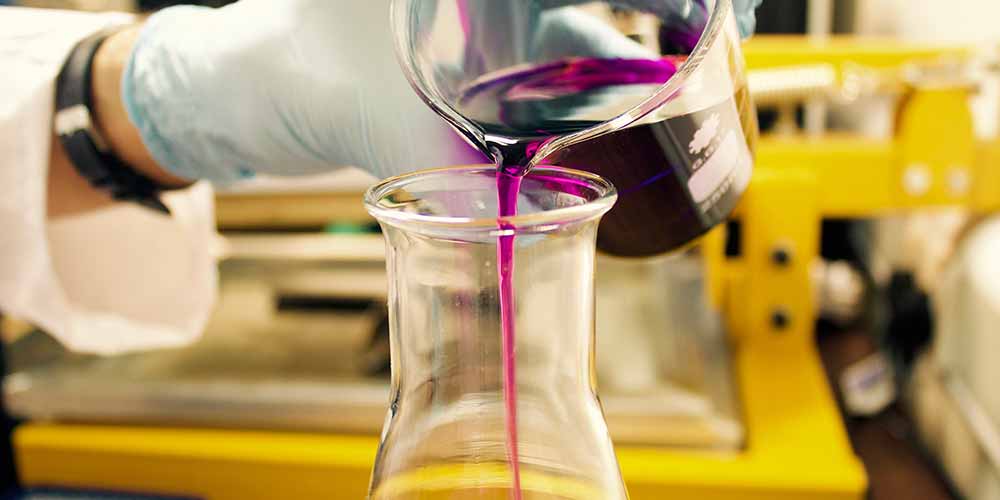COVID-19: Why your business should take an experimental approach
Be conscious of the impact fear has on your brain
COVID-19 is tightening its unwelcome grip on communities around the world! It’s scary for a number of reasons, most particularly because it raises the risk of untimely death. And we experience fear, which is also the most powerful emotion, because it plays such a vital role in ensuring our survival. So, with all that’s happening, experiencing some fear is perfectly normal. It shows you’re human!
However, it’s worth remembering that the emotions are often quite blunt, largely because they’re triggered outside of the ‘thinking’ circuitry of the brain. Actually, most of the processing is not even conscious. This ensures responsiveness in threatening situations, but that doesn’t take into account the fact that life today is nowhere near as dangerous as it was for our ancestors, even just 150 years ago.
Importantly, we should all note that fear (and its less potent cousins such as anxiety, doubt, concern etc.) commandeers the brain’s processes. In actual life-and-death moments that’s probably what you want. But when the situation is not acute, as in right-here-right-now, we don’t get to use important parts of our brains that make us different from other living creatures. Having diminished creative thinking and problem-solving capabilities, for example, can do more harm than good.
While in no way minimising the effects of COVID-19, the reality is that while there is currently no end to the pandemic in sight, it will end. Most will then be able to continue on with their lives without the immediate threat of the virus. Though the landscape will differ, businesses old and new will want to take advantage of the hard-earned, high-cost experiences of living with and through the pandemic.
If you’re inundated with lemons, can you make lemonade?
War is a topic area as unpalatable as COVID-19 and better avoided. But, at great human cost, we’ve had wars and from those have come technologies that have transformed the lives of future generations. These include the internet, GPS, duct tape, drones, weather radar, microwave ovens, digital cameras, computers, jet engines, synthetic rubber tyres, superglue, canned food, penicillin, wristwatches, walkie-talkies, EpiPen, freeze drying, blood banks and blood transfusion and ambulances.
Given the crisis we’re now working through, it would be helpful to intentionally consider what we’re learning about life in these uncharted times that we never knew before. Can we and our businesses make our own version of lemonade with the lemons that life is currently throwing our way?
Just thinking in that way, reframing from a glass-half- empty to a glass-half-full will do wonders for your sense of wellbeing. That, in turn, will increase the likelihood you’ll come up with more creative ideas and find some benefit.
The importance of an experimental approach
COVID-19 and its related challenges present us with complex problems. That’s because there are so many factors, all interconnected, many in ways we don’t understand. Even when we gain some understanding, it’s only a snapshot. Complexity often has very rapid ‘use by’ dates for data and insights.
Things change quickly and the best way forward is moving as quickly as possible, in mostly small (next adjacent) steps, taking the apparently best option. Expect unexpected challenges to emerge, maybe continuously. You only need to take a week’s worth of government responses to COVID-19 as proof of this. As unsettling and confusing as they seem, these continuous changes are a necessary and appropriate approach in complex contexts. However, don’t just focus on the negative. Complex systems can also deliver unexpected benefits and, if you’re not looking out for them, they’ll likely be missed.
COVID-19 is being approached in an essentially ‘experimental’ manner. While catastrophes have happened before, none were quite like this. And that’s another characteristic of complex systems. Experimenting is likely to help businesses trial options quickly, choosing those that, for the time being, deliver the best benefits in the current context. Research shows that it’s helpful to think of more options than you’ll pursue, to stimulate creativity. Then, test and refine your ideas through trial and error. Yes, there will be failure, but if you’re taking small steps, with multiple safe-to-fail experiments, you’ll likely be able to divert attention and resources to your more successful experiments, letting any that don’t add value fall by the wayside. Putting all your eggs in one basket may pay off, but a boom-or-bust strategy is risky and probably not the most resilient way forward in complex conditions.
Working virtually – the great business (and social) experiment
In only weeks, many organisations seem to have embraced the notion of working virtually. Just months ago many managers believed that their staff needed to be co-located in an office, but that’s changed. Now, for many, being able to work remotely is seen as offering a lifeline: to the staff a way to keep their jobs; to management, a way to keep their businesses afloat. This would be one experiment you may want to monitor from the start. What’s working well and what’s working less well? When the pandemic ends, and it will, what new insights and practice will boost your business?
PRACTICAL IDEAS TO APPLY IN YOUR BUSINESS
Tips for taking an experimental approach
- Consider many options before deciding on a course of action. If you can trial a few variations, even better. Know that your brain will try and get you to go with the first idea, because that is most economical for the brain – but it may not be the best solution, especially in complex contexts when the many, many factors and interconnections among factors are not all that clear.
- Take smaller rather than larger steps, but act quickly. Bigger steps will likely involve more resources and probably take longer to evaluate outcomes. They may deliver bigger rewards too, but are these not achievable in a very similar timeframe, but with smaller steps that are taken much more quickly. If something doesn’t work out, you’ll be pivoting to a potentially better alternative a lot more quickly (and cheaply).
- Keep a record of what you done, and even why certain options were selected or discarded. It may be useful to revisit some of these way after the fact. Unfortunately, the brain has a tendency to preference information that supports a particular perspective, so it may ‘forget’ information that doesn’t fit with current preferences.



